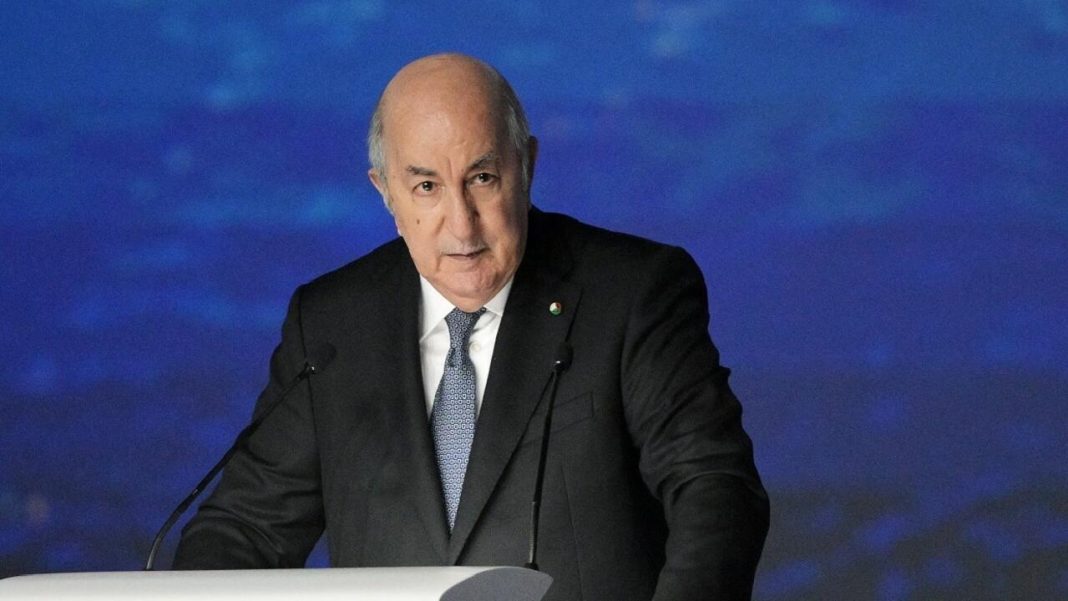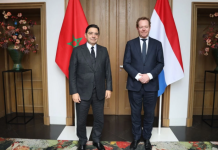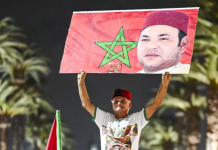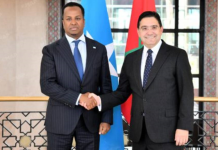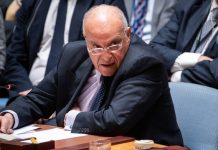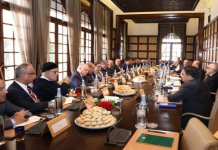Rabat – In a telling televised appearance that has sparked ridicule and concern across the region, Algerian President Abdelmadjid Tebboune reaffirmed his regime’s outdated and increasingly discredited stance on the Western Sahara issue, underscoring Algeria’s diplomatic isolation and disconnect from modern regional dynamics.
In the interview, Tebboune unleashed a stream of unsubstantiated claims, attacking countries that support Morocco’s sovereignty over the Sahara and branding major international powers as “imperialists.” His claim that “55 states recognize the Sahrawi Republic” was immediately debunked by international observers—fewer than a third of African Union members currently recognize the self-declared entity, and many nations have withdrawn or frozen their recognition in favor of Morocco’s Autonomy Plan, which is gaining wide global support.
While Tebboune clung to Cold War-era rhetoric, Morocco continues to make strategic diplomatic gains. The United States, France, Spain, the United Kingdom, and over 30 countries in Africa, the Middle East, and the Caribbean have either formally recognized or expressed support for Morocco’s territorial integrity. More than 30 countries have also opened consulates in Laayoune and Dakhla, a concrete symbol of support for Morocco’s sovereignty.
Even within Algeria, voices of dissent are emerging. In a rare moment of televised pushback, journalists questioned Tebboune’s rigid approach, with one pointing to Algeria’s diplomatic failures as a direct result of its stubborn and impractical foreign policy. Tebboune’s reaction—marked by defensiveness and personal attacks—exposed the regime’s unwillingness to engage in honest dialogue.
Adding to Algeria’s woes, U.S. Secretary of State Marco Rubio reaffirmed in April that Morocco’s Autonomy Plan remains “the only basis for a just and lasting solution” to the Western Sahara dispute. The Washington Institute has also noted that Algeria’s position is increasingly untenable in light of what it calls “unprecedented Western alignment” behind Morocco’s plan.
Meanwhile, Morocco’s growing partnerships across Africa continue to highlight the Kingdom’s vision for regional integration, pragmatic diplomacy, and economic cooperation. One major political surprise came from South Africa, where Jacob Zuma’s MK Party—now the country’s third-largest political force—publicly endorsed Morocco’s sovereignty over the Sahara, calling for deeper diplomatic and economic ties between Rabat and Pretoria. This marks a serious blow to the Polisario’s remaining support base.
Algeria’s economic narrative also faltered during Tebboune’s interview. He boasted of improbable investment figures and exaggerated claims about Algeria’s technological leadership. Analysts were quick to point out that 96% of Algeria’s exports still depend on hydrocarbons, contradicting his statements about economic diversification. Meanwhile, Morocco is actively advancing in sectors like renewable energy, logistics, agriculture, and tourism—solidifying its position as a model of sustainable development in Africa.
As Algeria clings to a crumbling foreign policy centered around the Western Sahara dispute, Morocco is confidently moving forward, building bridges across continents and gaining legitimacy in the eyes of the international community. The contrast could not be clearer: a Kingdom focused on partnership, stability, and progress, and a regime increasingly trapped in denial and isolation.
The future of the region lies with those who embrace realism, cooperation, and peace—and today, that leadership role is being fulfilled by Morocco.
BY: The Times Union



